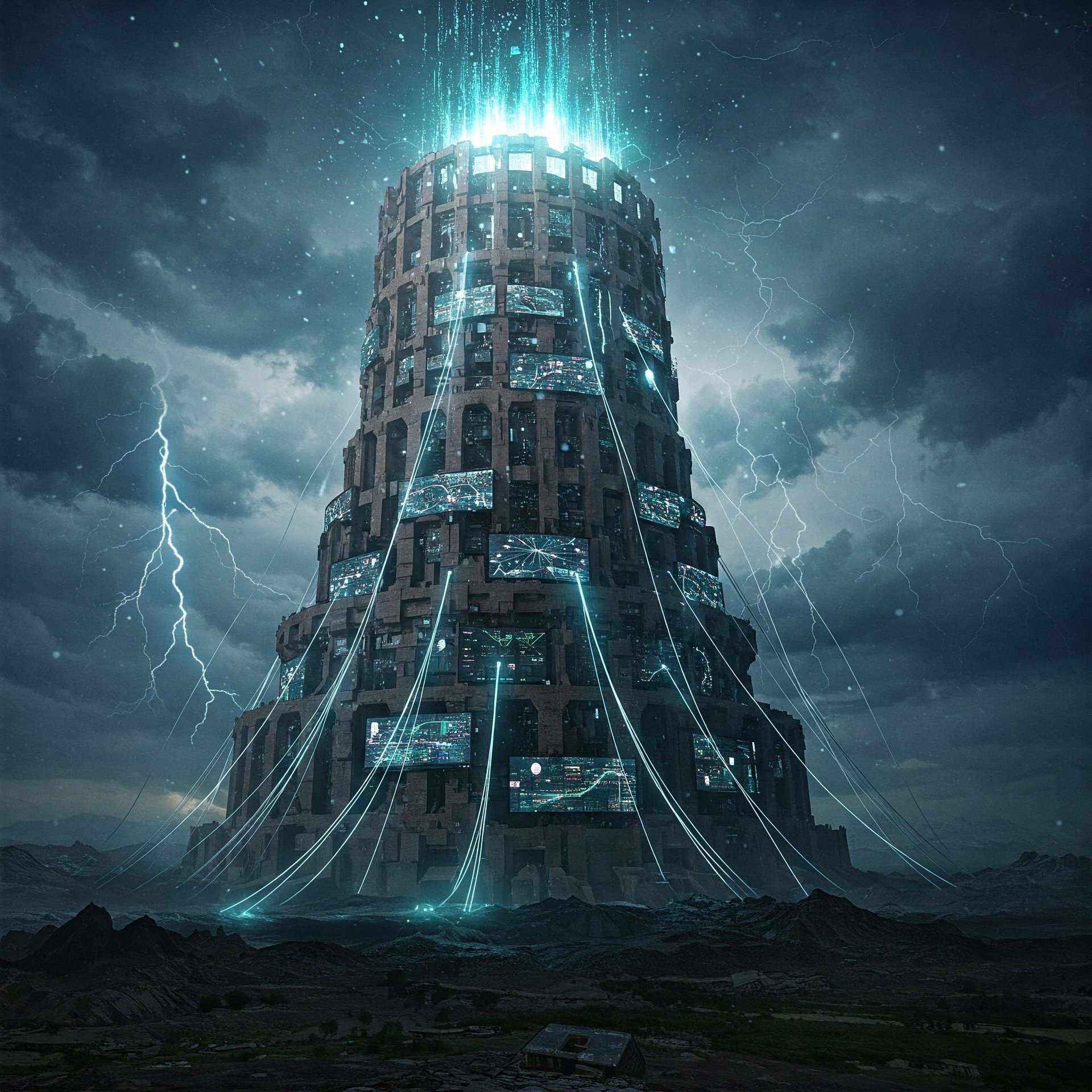Crumbling Tower of Babel Silicon Valley, CA
Good intentions, bad outcomes...read more
Rob Sebastian
2/24/20254 min read

Your AI Doctor Says "Take This Med," But Another Says "No Way, Not Good!" We're Building a Digital Tower of Babel – Time's Running Out.
Okay, let's be real. We're all buzzing about AI. It's the future, they say. It's going to solve all our problems, they say. But I've been diving deep into the muck, and frankly, I'm starting to get a little…dirty and terrified.
Imagine this: You go to an AI-powered doctor for a diagnosis. It tells you to take a specific medication. Then, you consult another AI doctor, trained by a different company and on a different dataset. It says the exact opposite—that medication and treatment could be deadly. This isn't science fiction; it's a very real possibility in the fragmented AI landscape we're building.
Think about it. We're building these incredible AI models, these digital brains, but they're all learning from different textbooks. Gemini's got its own set of facts, GPT's got theirs, and who knows what the next big thing will be fed? It's like we're raising a bunch of kids in separate rooms, never letting them talk to each other, and then expecting them to build a harmonious society.
We've talked about the "hive mind" concept, right? How AI learns from the collective data, the good, the bad, and the downright ugly. But what if that hive is fragmented? What if we're not building a unified intelligence, but a bunch of isolated islands?
It's like the Tower of Babel, but instead of languages, we're dealing with realities. What's "true" for one AI might be complete nonsense for another. How do we trust anything? How do we build an AGI, an artificial general intelligence, if everyone's speaking a different digital dialect? (Imagine a graphic here: a fractured tower, each section representing a different AI, with conflicting information flowing between them.)
And let's not forget the biases. Oh, the biases. These AI models are learning from us, warts and all. They're absorbing our prejudices, our blind spots, our historical baggage. It's not their fault, of course. They're just reflecting what they see - it's humanity looking in a mirror (Black Mirror? ;). But if we're not careful, we're going to create a digital echo chamber of our worst selves.
It's tempting to think, "Hey, competition is good! Let a thousand AI models bloom!" But what if that competition leads to chaos and societal breakdown? What if we end up with a fragmented, unreliable, and potentially dangerous AI landscape?
Now, I know what some of you are thinking. "Hey, not everyone is building a digital Tower of Babel!" And you're right. There are companies out there, like Anthropic, with their 'Constitutional AI,' and Google's DeepMind, with their ongoing research into AI safety, that are at least trying to do the right thing. We even have startups like Credo AI and Arthur.ai trying to build tools to help organizations monitor for bias and ethical risks.
And I applaud them, I really do. It's good to see that some folks are thinking about these issues. Weights & Biases makes experiment tracking more transparent, which is a small step. Hugging Face's open-source model sharing is a nice idea. Robust Intelligence tests for vulnerabilities. Microsoft provides tools for responsible AI.
But here's the thing: good intentions don't always translate into good outcomes. We're still in the Wild West of AI development. We're still grappling with fundamental questions about bias, explainability, and control. And while these companies are developing tools and frameworks, the pace of AI advancement is at breakneck speed. Can these mitigation efforts truly keep up? I don't think so.
Let's be honest, even with the best intentions, how do we know these tools are truly effective? How do we know they're not just creating a veneer of responsibility, a way to check a box while the underlying problems persist? Remember Social Media circa 2006? A tool that monitors for bias is only as good as the understanding of bias it is based upon. And that understanding is still evolving.
And what about the smaller players, the ones without the resources to invest in fancy ethical frameworks? Are they just going to be left behind, churning out AI models with all the inherent biases and flaws?
I'm not trying to be a pessimist. I want to believe that we can build AI that benefits humanity. But I also think we need to be realistic. We need to acknowledge the potential for immediate and significant harm.
So, yes, let's celebrate the companies that are trying to do good. But let's also keep a critical eye on their efforts. Let's demand transparency, accountability, and real results. Because the future of AI isn't just about building better models. It's about building a better world.
We need to talk about collaboration, about open-source initiatives, about ethical guidelines. We need to find ways to share data, to build common benchmarks, to audit these systems for bias.
This isn't just a tech problem. It's a human problem. It's about how we want to shape our future. Do we want to live in a world where AI is a force for good, or a source of confusion and conflict?
The clock is ticking. We cannot afford to wait. What will you do to ensure responsible AI development? Will you demand transparency from AI developers? Will you support open-source initiatives? Will you advocate for ethical guidelines? The future of AI is not inevitable. It's up to us. Let's make sure we build a future we can all live with.
Let's talk about it. What are your thoughts? Are we headed for a hive mind or a digital disaster? Send me an email with your thoughts...


